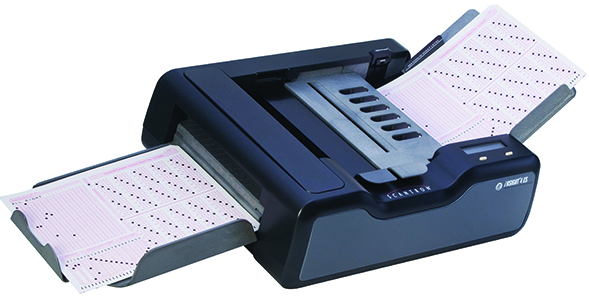In the fast-paced world of careers and employment, optimizing processes is key to staying ahead. One such tool that has gained prominence is the Optical Mark Recognition (OMR) scanner. In this article, we'll delve into the nuances of OMR scanners and guide you in making an informed decision by exploring the factors influencing their prices.
Understanding OMR Scanners
Before we dive into prices, let's establish a foundational understanding of OMR scanners. These devices are designed to recognize distinct marks on paper, commonly used for assessments, surveys, and various data collection activities in the professional realm.
How OMR Scanners Work
OMR scanners work on the principle of detecting reflected light. The marked areas on a document reflect less light than the blank areas, allowing the scanner to identify the presence or absence of a mark.
Why Invest in an OMR Scanner for Your Career
Time Efficiency
Investing in an OMR scanner can significantly boost time efficiency in tasks like grading assessments, conducting surveys, or processing applications. The automation these scanners offer can free up valuable time for more strategic aspects of your career.
Accuracy Matters
In the professional world, accuracy is non-negotiable. OMR scanners provide a reliable and accurate method of data collection, minimizing errors in crucial processes such as employee evaluations or client feedback.
Factors Influencing OMR Scanner Prices
Now that we understand the importance of OMR scanners let's explore the key factors that contribute to their pricing.
Scanner Type
The market offers various types of OMR scanners, ranging from basic models for small businesses to advanced scanners suitable for large enterprises. The more features and capabilities a scanner has, the higher the price.
Scanning Speed
The scanning speed of OMR devices varies. High-speed scanners come at a premium but can significantly reduce the time required for large-scale data processing.
Software Integration
The level of software integration with OMR scanners can affect their price. Sophisticated software that seamlessly integrates with existing systems may come with a higher cost.
Comparing OMR Scanner Prices
Now that we've identified the factors influencing prices, let's compare different OMR scanners and their associated costs.
Entry-Level Scanners
These scanners are ideal for small businesses or individuals looking for basic OMR functionality. Prices range from $200 to $500, making them a cost-effective solution for streamlined tasks.
Mid-Range Scanners
Mid-range scanners offer enhanced features and faster scanning speeds. Priced between $500 and $1500, they cater to businesses with moderate data processing needs.
High-End Scanners
For large enterprises requiring advanced features and high-speed scanning, high-end OMR scanners are the go-to option. Prices for these scanners can exceed $5000, reflecting their top-tier capabilities.
Making the Right Choice
Assessing Your Needs
Before investing, assess your specific requirements. Consider the volume of data processing, the complexity of forms, and the integration capabilities needed for seamless workflow integration.
Budget Considerations
While it's tempting to opt for the latest and most advanced scanner, it's essential to align your choice with your budget constraints. Prioritize features that directly impact your workflow efficiency.
Conclusion
In the dynamic landscape of careers and employment, efficiency is paramount. An OMR scanner tailored to your needs can be a game-changer, streamlining processes and allowing you to focus on what truly matters in your professional journey.
Frequently Asked Questions (FAQs)
- Q: Can OMR scanners be used for more than just assessments?
- A: Absolutely! OMR scanners are versatile tools that can be employed for surveys, feedback forms, and various data collection activities in the professional realm.
- Q: Are high-speed scanners worth the investment for small businesses?
- A: It depends on the volume of data processing. For smaller tasks, an entry-level scanner might suffice, but high-speed scanners can significantly boost efficiency for larger-scale operations.
- Q: How frequently do OMR scanners require maintenance?
- A: Maintenance frequency varies based on usage. Regular cleaning and calibration are recommended to ensure optimal performance.
- Q: Can OMR scanners handle different types of paper?
- A: Yes, most OMR scanners are designed to handle various types and sizes of paper, providing flexibility in document processing.
- Q: Is it challenging to integrate OMR scanners with existing software systems?
- A: Not necessarily. Many OMR scanners come with user-friendly software and offer integration options, but it's advisable to check compatibility with your existing systems before purchasing.





Comments